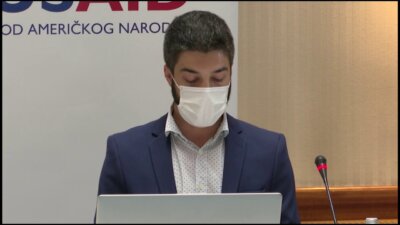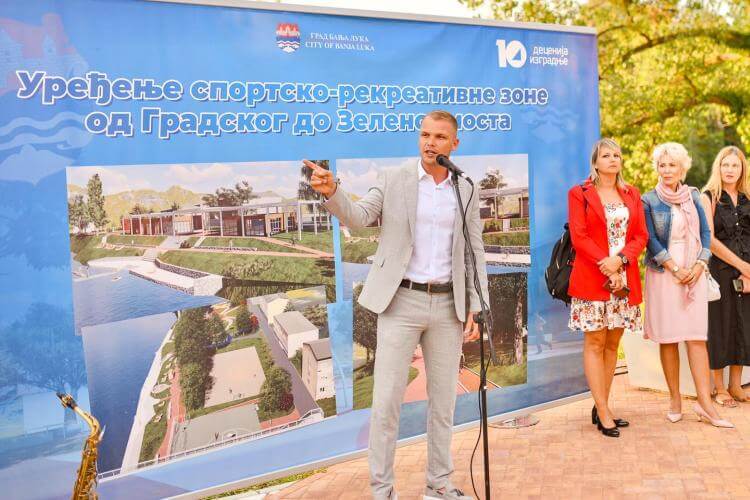Research conducted by the Infovez portal for the past year, 2022, regarding employment in institutions in Republika Srpska, reveals alarming results that indicate that even the highest institutions in Srpska do not adhere to the law or other regulations, that is, sub-legal acts.
We have determined that during 2022, in the Ministry of Energy and Mining of Republika Srpska, work contracts were concluded with three individuals for tasks that constitute the regular, fundamental activities of the Ministry of Energy and Mining of Republika Srpska, and which are systematised by the Regulation on Internal Organization and Job Systematization, which is not in accordance with Article 205, paragraph (1) of the Labor Law.
According to the mentioned article, a work contract can be concluded for the performance of tasks that are outside the employer’s activities. Work contracts were concluded in the Ministry for three individuals for the performance of intermediary, expert, and consulting services, as well as the tasks of the minister’s driver.
In the Ministry of Family, Youth, and Sports of Republika Srpska, work contracts were also concluded with six performers for tasks that constitute the regular, fundamental activities of the Ministry of Family, Youth, and Sports of Republika Srpska.
There is a real mess in the General Secretariat of the Government of RS, where during 2022, two interns were employed without conducting a competitive procedure, which represents a direct violation of the law, while five employees established fixed-term employment relationships due to increased workload for a period longer than six months. Additionally, one employee was on unpaid leave for a total duration of 48 months, which is not in accordance with Article 62, paragraph (2), Article 50, paragraph (3), point b), and Article 19, paragraph (3) of the Law on Civil Servants.
Although we addressed the Secretariat and requested the names of unlawfully employed interns in a letter, we did not receive a response from this institution, which means that it is also violating the Law on Freedom of Access to Information. As Infoveza unofficially learns, the employed individuals are members of the Alliance of Independent Social Democrats from Banja Luka.
Furthermore, the Ministry of Scientific and Technological Development, Higher Education, and Information Society of Republika Srpska concluded employment contracts on a fixed-term basis with four employees during the year (including one continuously since 2019) for the increased workload on systematised job positions that are not filled. The contracts were concluded for a period longer than six months, which is not in accordance with Article 50, paragraph (3), point b) of the Law on Civil Servants.
In 2022, the Ministry concluded work contracts with two individuals to perform specific tasks that constitute regular, fundamental activities and are systematised by the Regulation on Internal Organization and Job Systematization within the Ministry.
Similarly, the Ministry of Health and Social Welfare of Republika Srpska, due to increased workload in 2022, engaged two employees on fixed-term contracts lasting more than six months. Meanwhile, the Ministry of Labor and Veterans’ Affairs of Republika Srpska concluded work contracts with eight employees for tasks that constitute the regular, fundamental activities of the Ministry, which is not in accordance with the aforementioned Article 205 of the Labor Law. Throughout 2022, the Ministry employed ten individuals based on work contracts. work contracts with eight employees were concluded continuously from the beginning of 2022 for tasks that constitute the regular, fundamental activities of the Ministry.
During the period from January 1 to December 31, 2022, the Ministry of Economy and Entrepreneurship of Republika Srpska concluded 25 work contracts with 6 employees for tasks that constitute the regular activities of the Ministry.
Without going further, such examples are numerous, and as we emphasized at the beginning, they only pertain to the previous year. The situation on the ground, naturally, is the same in all previous years.
Similar Situation in Municipalities and Cities
Numerous irregularities, most commonly related to work contracts that were concluded during 2021 and/or 2022 for tasks that constitute regular activities and are related to tasks that are systematised in regulations on internal organisation and job systematization, have been observed in the municipalities of Foča, Petrovac, Šekovići, Mrkonjić Grad, Nevesinje, Istočno Novo Sarajevo, Kostajnica, Kneževo, Istočna Ilidža, Trebinje, and others.
In the municipality of Petrovac, a contract for internship was not concluded with an employee who was performing an internship, while in the municipalities of Mrkonjić Grad, Istočna Ilidža, Nevesinje, and similarly in the city of Trebinje, during the year, temporary contracts were engaged for a fixed-term period longer than six months due to a temporary increase in workload.
 Journalist Goran Dakić from Banja Luka explains for our portal that the times have passed when our country cared about the state and did its job and that the Main Service for Audit of the Public Sector in RS, which should deal with these matters, in reality, represents, as he puts it, a department for the cosmetics of power.
Journalist Goran Dakić from Banja Luka explains for our portal that the times have passed when our country cared about the state and did its job and that the Main Service for Audit of the Public Sector in RS, which should deal with these matters, in reality, represents, as he puts it, a department for the cosmetics of power.
“Boško Čeko’s time, when his press conferences were more attended than Dodik’s today, is long behind us. Čeko was the last auditor who ‘cared’ about the state and did his job the way everyone should do it. Today, auditors who control and evaluate the matters you occasionally write about may identify certain irregularities, but these irregularities will be ones for which no one will be held accountable. The Main Service for Audit of the Public Sector is actually a department for beautifying power. It must make an effort to make everything look perfectly beautiful and unquestionably correct,” emphasizes Dakić.
 Damjan Ožegović from Transparency International explains that according to the provisions of the Labor Law, a work contract can be concluded with an individual for performing tasks outside the employer’s activities. However, he states that the fact that these contracts are concluded for tasks that are the regular activities of institutions already speaks volumes about the freedom that public institution leaders have in violating the law, knowing that they will not face sanctions for their actions. On the other hand, they can secure a safe gain for themselves and third parties involved in such relationships.
Damjan Ožegović from Transparency International explains that according to the provisions of the Labor Law, a work contract can be concluded with an individual for performing tasks outside the employer’s activities. However, he states that the fact that these contracts are concluded for tasks that are the regular activities of institutions already speaks volumes about the freedom that public institution leaders have in violating the law, knowing that they will not face sanctions for their actions. On the other hand, they can secure a safe gain for themselves and third parties involved in such relationships.
“This is often done with individuals who will later be employed in permanent positions to bypass regular procedures, but very often with personnel who have fulfilled the conditions for retirement as a form of reward. Besides circumventing employment procedures, one of the motives is also to avoid and adapt internal job systematization regulations. However, the lack of appropriate sanctions encourages such behaviour, and audit reports remain mere words on paper, even though auditors have the legal possibility to forward identified illegalities to relevant institutions for action. However, this series of events highlights the lack of cooperation that should result in punishment,” concludes Ožegović.

Writes: Stefan Blagic






